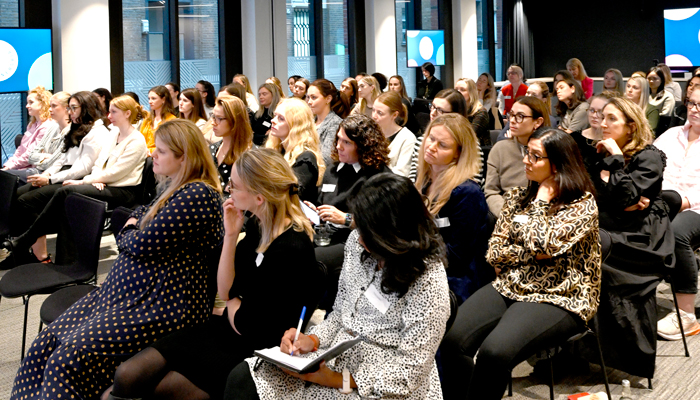Traditional management and reward processes significant barriers to retaining women in the property industry

New research from The Circle Partnership uncovers key traits and derailers contributing to the mid-level female talent retention challenge faced by the Built Environment
New research from the Circle Partnership, in collaboration with Cellence Plus and Laing O’Rourke, shows that traditional approaches to talent management and recognition are failing women in the built environment, feeding the trend of poor talent retention and exacerbating the skills crisis.
The research looks in depth at the unique values, strengths and derailers of a group of mid-level women in a variety of roles from across the Built Environment. The findings revealed unexpectedly marked similarities in how this diverse group behave in the workplace.
These consistencies provide significant clues as to some of the issues effecting female talent retention at this crucial mid stage. The study revealed:
- Women are discouraged by overtly competitive or ambitious behaviour, preferring to earn recognition through consistency, reliability, and quiet competence.
- They are more cautious and risk averse when it comes to career and finance, which could be a key contributor to the ongoing gender pay gap.
- Women are extremely strong in relationship building, emotional intelligence, empathy, influencing and team building – these ‘relational’ skills are becoming critical as technology and new working practices become more diffuse.
- Women are more driven to contribute to team success and prioritise collaboration over personal advancement.
- They tend to avoid the discomfort than can accompany truly high performance, move away from people and businesses when under pressure, and have a tendency to bottle up frustrations.
If the industry is serious about attracting and retaining female talent and easing costly and inefficient employee turnover, businesses should reconsider the ways in which women are managed, developed and rewarded.
The research was conducted using the Hogan psychometric, which tests for actual traits as opposed to personality preferences.
Ceri Moyers, Director of The Circle Partnership, commented: “It’s not news to say that the Built Environment has a problem when it comes to gender balance – particularly at senior leadership levels. What we have struggled to truly understand is, why. A focus to date on the policies and procedures that impact on diversity has ignored a critical piece of the puzzle: that of culture and behaviour.
“The insight gained from this study suggest that the industry still doesn’t seem to fully understand how to make the most of women’s talents and potential. And it also raises bigger questions about our macro workplace culture; is it time to begin truly re-examining the environment that favours traditionally masculine traits of extroversion, competition and leading from the front rather than expecting others to adapt to fit?”
Lucy Kendall, Head of Resourcing and DEI, Laing O’Rourke added: “The behaviours that this study revealed complement traditional definitions of ‘masculine’ and ‘feminine’ traits highlighted in gender-based research, but what is startling is the consistency of the findings, particularly when considering the size, age, experience and role spread of the women assessed. For any organisation looking to retain its female talent, these findings demand attention when it comes to talent management strategies.”
Matthew Carter, Director, Cellence Plus said: “We were proud to collaborate with Circle Partnership, Laing O’Rourke, and the cohort on this report. This insights into how females in the industry are feeling and how they feel in the workplace are very powerful. The insights for organisations are equally so, specifically on how to provide a clear indication of what conditions, culture, purpose and organisational behaviours need be in place to enable future success.”
If seen as a predictor of future capability, these findings should help to better inform organisations’ female talent development interventions as well as broader gender diversity initiatives. Without more nuanced support, the retention challenge at mid-level that currently affects the Built Environment will remain, with inevitable consequences on the diversity of the long-term senior leadership pipeline.
Add your comment

- Catering 1
- Construction 39
- Contracts, Projects, Bids 19
- Energy Management 103
- Engineering, Maintenance 623
- Estates, Property 36
- Events 1
- Facilities Management (main) 278
- Front of House 1
- Hard Services 54
- Health & Safety 1
- HVAC 218
- Management 2
- M&E 224
- Operations 81
- Procurement 19
- Sales & Marketing 4
- Soft Services 3
- Sustainability 1


